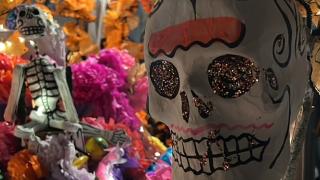
The phrase "multitasking" is commonplace today. It is often seen as a compliment for who can juggle several tasks or relationships at once - and do them well. Less attention is given to those who struggle with competing matters. In the 80's, the "sandwich generation" became a term for persons between 40 and 59 saddled with caring for aged parents while raising children at the same time. A new term is now given for those in their 20s, 30s and 40s, with young children, aging parents and grandparents. It is named after the multi-layered "club sandwich." There are many perspectives and responses to "sandwich" experiences, all of them starting with self-awareness. Thich Nhat Hahn asserted: "To me, the practice of a healer, therapist, teacher, or any helping professional/person should be directed towards him or herself first, because if the helper is unhappy, he or she cannot help many people."
Assess your attitude about each of the demands:
- Do some require immediate response, others not so? For which is your skill set a match?
- Who is on YOUR team? Are there others who can offer support?
- How easily do you ask for help? How willing are you to receive help?
- Are you taking on the task voluntarily or under duress? Are you already in a reactive mode, rather than proactively gathering the team or some advisors to make a plan?
Add to these self-awareness discerning questions. Author and historian Edward Hale's stance on knowing yourself helps encourage actions, but also sets limitations. I am only one. But still, I am one. I cannot do everything, but still, I can do "somethings". And because I cannot do everything, I will not refuse to do the "somethings" I can do.
The late William Stafford wrote poetry every day for over 50 years. Someone asked him how he wrote a poem every day. Stafford's response was that some days you have to lower your standards. What needs our best and what can we do well with just enough? Or the direction in which you look will determine what you see. In 1918, Edna St. Vincent Millay wrote: My candle burns at both ends; It will not last the night; But ah, my foes, and oh, my friends— It gives a lovely light!
Caregivers often speak of the weight of caregiving as simply part of family life. "Mom, it's now my turn to help you. A personal example of "team" resourcing in my life involves my grandchild, who was diagnosed with reading dyslexia early in his life. Even with family and professionals offering support and tools, he struggled with keeping up with reading assignments, especially in middle school. His grandmother and I read his textbooks to him for at least two hours each week. He was an amazing auditory learner. Our reading was a gift to the whole intergenerational family.
"Sandwiches" or tensions about competing responsibilities create an ambiguous dilemma. Who, what, when, how? Facing uncertainty is very stressful for many of us who are persons or teams accustomed to solving problems and having definitive answers. When facing mid-life or club sandwich tensions at home or work, start with a gentle state of self-awareness. From there:
- Label what you are experiencing!
- Be flexible; adapt routines, minimize helplessness.
- Normalize the situation.
- Emphasize what can be changed and what cannot.
- Ask for help.
- Move from "either/or" choices to "both/and choices."
About our guest author

Ted is a grief and family educator. He specializes in changes and transitions. For over 40 years, he has been a frequent trainer, consultant, and speaker with many groups throughout Minnesota, the United States, and other countries. Ted was an adjunct professor at the University of Minnesota (Family Education) 1981-2012; at the University of Saint Thomas (Social Work), 2006 until 2019; and from 1989 to 1996 at United Theological Seminary of the Twin Cities. Ted is the author of over 125 articles and chapters appearing in books, journals, newspapers, and magazines. His booklets, Loss of Dreams: A Special Kind of Grief, and Finding Hope When Dreams Have Shattered, are widely used in grief care. He and Elizabeth Johnson co-edited The Wind Blows, the Ice Breaks, a volume of poems by MN poets addressing themes of loss and renewal. His newest book, Ambiguous Parables: Poem and Prose of Loss and Renewal, was published in November of 2021.



